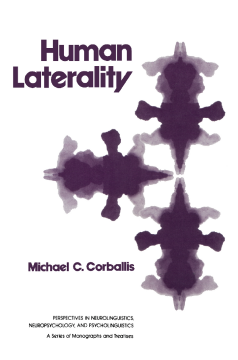
Additional Information
Book Details
Abstract
Human Laterality presents the main facts of human laterality as they are known. Drawing on evidence from normal, intact human beings and neurological patients, along with material on asymmetries in other species, this book traces the development of laterality, its evolution, and inheritance. This text also reviews the literature on the relation between laterality and developmental disorders of speech and language, including dyslexia, stuttering, and dysphasia.
This book is organized into nine chapters and begins with an overview of the development of knowledge and ideas about laterality over the course of history. This text gives an account of the myths that abound regarding handedness, including the association of right with male and left with female, with the goal of demythologizing human laterality. It argues that there is a common basis to both handedness and cerebral lateralization, and indeed to other manifestations of human laterality such as eyedness and footedness, and that lateralization is fundamentally biological rather than sociocultural. Human laterality is also seen as an innate disposition rather than a matter of learning or imitation. In the final chapter, this book speculates about the possible origins of laterality in the fundamental asymmetries of living molecules and of particle physics.
This book is essential reading for biologists and researchers interested in the human anatomy.
